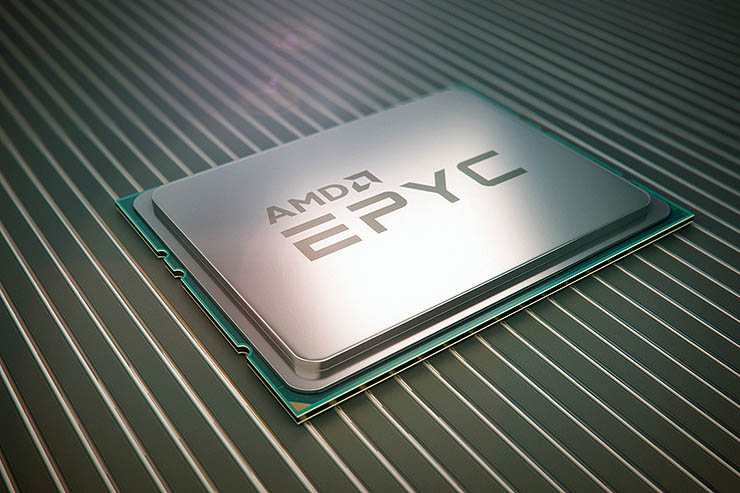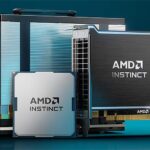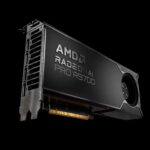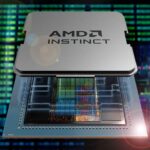
AMD presenta AMD EPYC e Radeon Instinct, soluzioni altamente performanti pensate per accelerare l’innovazione in ambito supercomputing.
All’evento SC17, AMD e i partner hanno annunciato l’immediata disponibilità di una suite di sistemi innovativi e altamente performanti supportati da AMD EPYC CPU e AMD Radeon Instinct GPU – il tutto per accelerare l’innovazione nell’ambito del supercomputing e sostenere tecnologie innovative basate, per esempio, su Machine Learning (ML) e intelligenza artificiale (AI). AMD combina questo ampio portfolio con soluzioni software innovative, tra cui la nuova piattaforma open ROCm 1.7 che comprende tool di sviluppo e librerie aggiornate.
Forrest Norrod, senior vice president and general manager of enterprise, embedded and semicustom products, AMD
The industry’s leading system providers are here at SC17 with a full breadth of AMD-based solutions that deliver outstanding compute capability across HPC workloads. The power of the AMD portfolio is further underscored by investments we made in our open platform approach. Only AMD offers high performance CPU and GPU products, along with a completely open source software development environment with ROCm.Julia Shih, VP of Business Development, AMAX
As a high-performance technology provider enabling enterprises to close the gap between scale up performance, compute density and cost, AMAX sees the P47 as a game changer. Starting from a single P47 platform, we can scale upwards to supercomputing-class performance by leveraging AMD EPYC, AMD Radeon Instinct, and the ROCm software platform to support Deep Learning, rendering, and a host of other workloads. The [SMART]Rack P47 is the first turnkey PetaFLOPS-in-a-Rack solution geared towards technical performance and business acceleration, married with ease of use. We are excited to announce that we are now taking pre-orders for both the P47 server and the fully-integrated [SMART]Rack P47, with delivery estimated in Q1 of 2018.Robert Chin, head of ASUS Server business unit
As one of the first companies to introduce AMD EPYC-based servers, ASUS understands the need for platforms that can scale to meet the performance and power requirements of data-intensive HPC and virtualization applications. Server performance and efficiency is critical to any datacenter, however it is especially important when managing the most demanding tasks inherent in deep learning applications. Our EPYC-based ASUS RS720A-E9 and RS700A-E9 servers on the market today meet this challenge for a dramatically improved experience.Shoaib Mohammad, BOXX Vice President of Marketing and Business Development
For two decades, BOXX has developed innovative workstations, rendering systems, and servers for engineering, architecture, VFX, motion media, and other industries. Now we’re applying that same expertise to advanced, multi-GPU compute solutions for deep learning. With AMD EPYC server processors, we can significantly boost performance, power and memory to drive advancements in data mining, natural language processing, image recognition, and security.Gene Lee, President, EchoStreams
EchoStreams supports solution providers and integrators of all sizes by delivering the latest server and storage technologies via OEM/ODM platforms purposely designed for different usage models in different markets that require data-intensive management. With the addition of the high-performance EPYC processors from AMD to our storage portfolio, today we can offer customers an even more powerful solution capable of taking on the complex challenges in the continuously evolving areas of artificial intelligence and deep learning.Daniel Hou, vice president, Research & Development, GIGABYTE Technology
GIGABYTE Technology is a key go-to-market partner for delivering EPYC processor-based server platforms, offering customers a mature ecosystem, industry-transforming hardware design and serious compute, memory, I/O and power for complex HPC computations. Supercomputing requires significant compute density at the server level to drive a diverse range of applications, and with our R-series and G-series EPYC processor-based rackmount servers available today, GIGABYTE is ready for the next frontier.Justin Hotard, Vice President and General Manager, Volume Global Business Unit, HPE
HPE is a foundational partner to AMD on its journey with EPYC. As the world leader in supercomputers and high performance computing, we are committed to delivering solutions to customers with highly complicated workloads, and AMD delivers the power, density and scalability to help break barriers.Philip Pokorny, Chief Technology Officer, Penguin Computing
Penguin Computing is a longstanding leader in open, Linux-based HPC solutions, and we have delivered hundreds of HPC clusters to customers in a variety of vertical markets spanning life sciences, government, manufacturing, financial services and more. The high-performance EPYC processors from AMD, powering our new Altus line of 1U and 2U server platforms, provide the scalability, memory and high core count that are key to driving advanced HPC and machine learning workloads, and enable us to tackle new challenges in supercomputing.Don Clegg, VP of Marketing, Supermicro
Our high-density compute solutions optimized for the new EPYC processors offer more cores, more memory channels, and more PCI-E expansion lanes than any previous AMD platforms. These enhanced features enable maximum performance-per-watt, scalability and reliability, all of which are vital in solving today’s biggest challenges in science, engineering, simulation, modeling and data analytics. Supermicro’s broad portfolio of EPYC-based A+ Servers, available today in 1U, 2U, 4U and tower form factors, conquer these challenges, helping our enterprise customers to stay ahead in the extremely competitive HPC market while lowering overall TCO.Danny Hsu, Vice President of MiTAC Computing Technology Corporation’s TYAN Business Unit
The AMD EPYC processor inside our TYAN servers enables us to double down on performance, delivering the power of a dual-socket platform in a single-socket form factor to maximize value and support an array of high-performance applications. Designing products that can handle complex and often difficult workloads in HPC environments requires scalability, efficiency and an exceptionally high-performance infrastructure, which are all qualities we see in the EPYC portfolio, and why we are partnering with AMD to address the major computing challenges of today and tomorrow.






